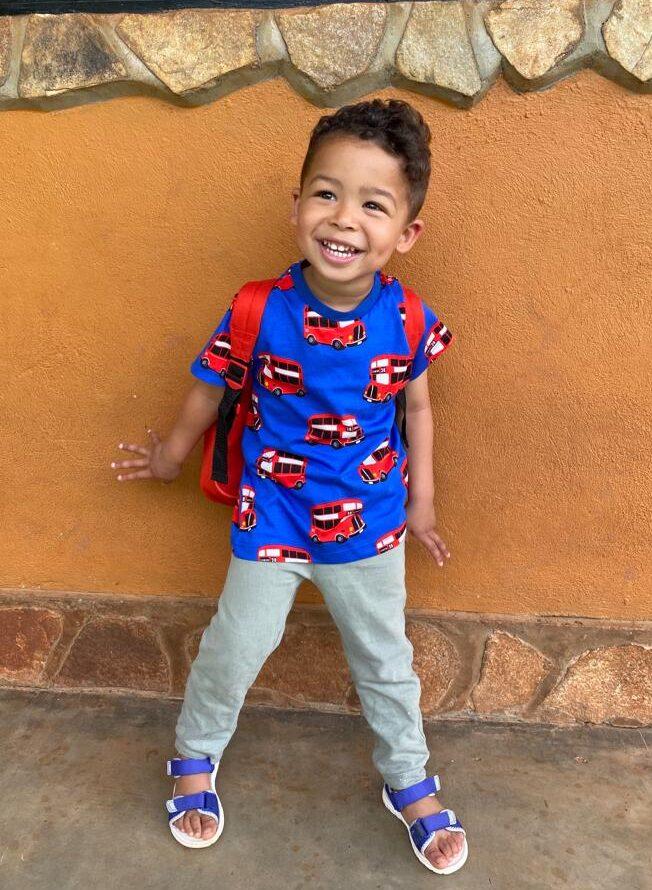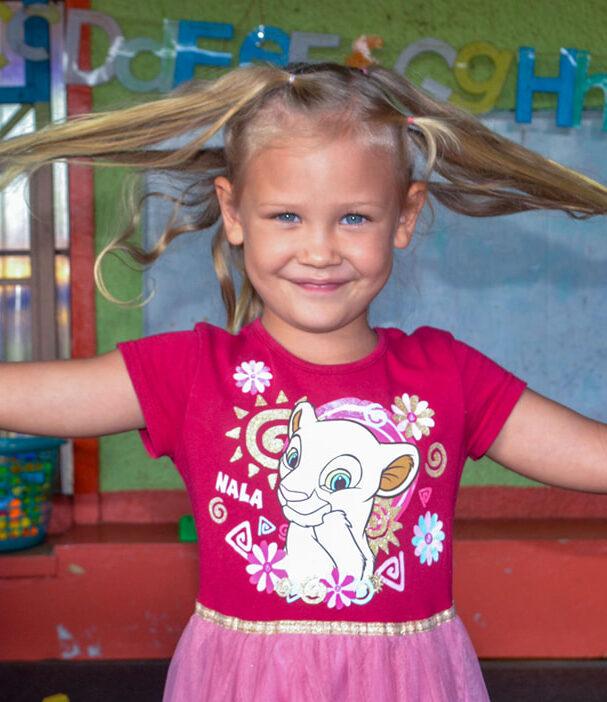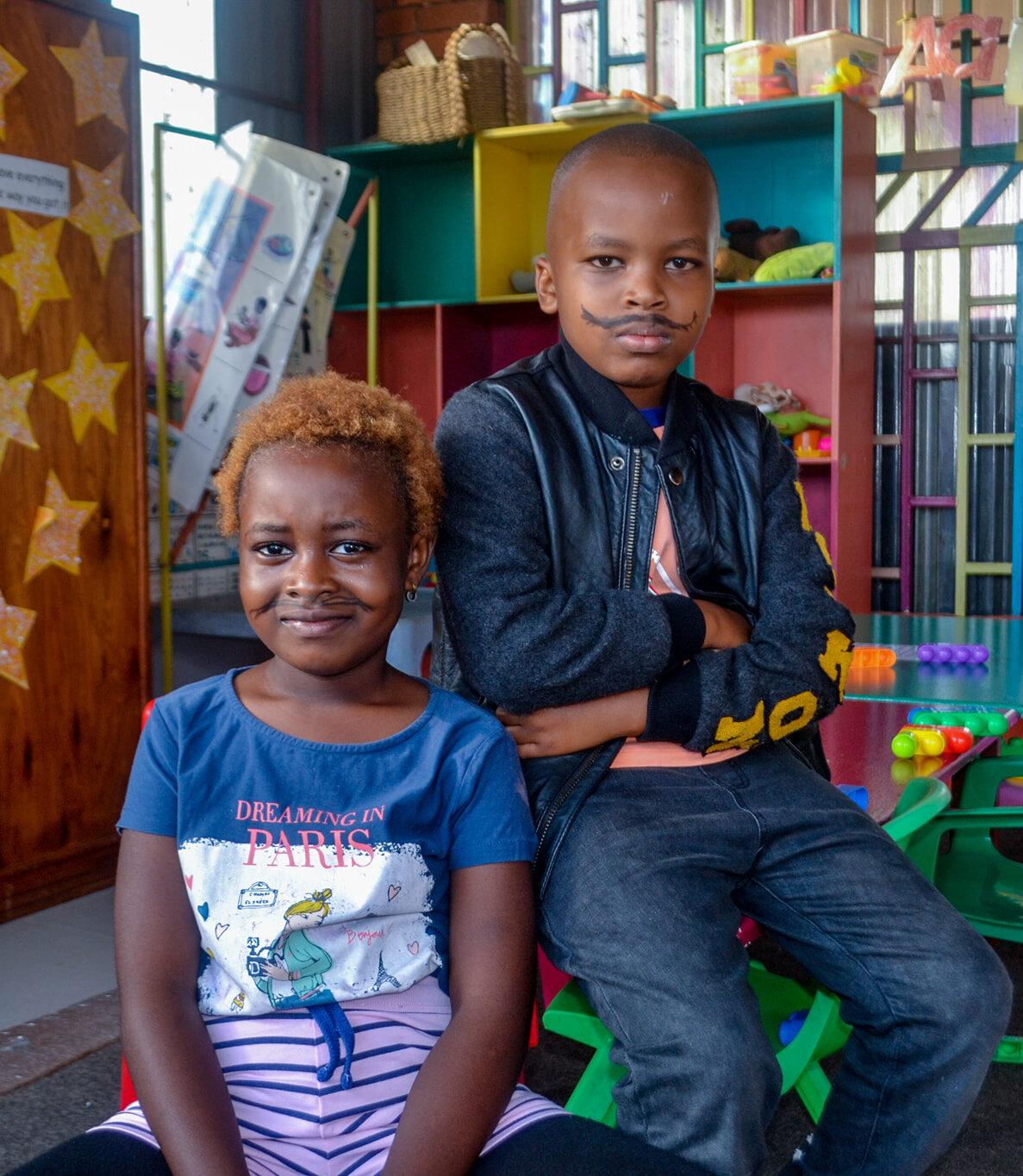Early Years
Our qualified and experienced Early Years teachers welcome you to the U-Can International School Early Years program!
Our Learning Programs
We run three learning programs in the Early Years department each following our highly developed Canadian International Curriculum.

3 Years
Pre-K
Our Pre-Kindergarten program is developed as a play-oriented learning experience for children to explore their independence and cooperation skills.
Students are given ample opportunity to explore and discover in our independent learning spaces with a variety of hands-on activities.
The Canadian International Curriculum empowers our Pre-Kindergarten children to develop their behavioral & social, logic & reasoning, and language & literacy skills.
4 Years
Kindergarten
Kindergarten at U-Can is a place where your child learns to interact and cooperate with others in order to develop the communication and social skills needed in school and everyday living.
Following our Pre-Kindergarten program, children are continued to discover and explore the world around them through independent and group fun focussed learning.
Our Canadian International Curriculum provides the foundation for Kindergarten children to succeed as confident, successful, and lifelong learners.


5 Years
Foundations
Our Foundations program is a specially designed curriculum preparing children to start primary school. Underpinned by our excellent Canadian International Curriculum, children graduate Foundations program ready to continue their learning journey at U-Can or other curriculums.
Our classrooms utilize large open spaces for independent play-oriented and inquiry-based learning as well as desks for taught activities to prepare children in phonics, numeracy, and literacy.
Our Key Learning Elements
The Early Years program is structured around four key elements of development to ensure the growth of the whole child
Intellectual Growth
We help build brain power by supporting the development of judgment, perception, memory, reasoning, critical thinking, and language through a series of age-appropriate cognitive activities.
Esteem
We develop children’s verbal and non-verbal communication through opportunities to socialise and gain confidence, self-esteem and negotiating skills necessary for a lifetime of healthy relationships.
Emotional security
Our safe and nurturing environment allows children to express themselves and understand their own unique identities, forge trusting relationships and have fun being themselves!
Physical well-being
We focus on the physical health and well-being of your child so he grows up safe and strong. Motor-skill development, coordination, mobility, and exercise all help ensure your growing child has a healthy body for a lifetime.
Parent FAQs
We believe that your child deserves a great introduction to the exciting world of learning. We will ensure that your child will participate in a well-rounded program that will prepare him/her for a happy lifelong learning experience.
We seek to the develop the whole child – social, emotional, intellectual & physical for a well-rounded individual.
“That learning is fun”. When children enjoy learning then school becomes something to look forward to and be excited about. When children enjoy the learning experience their minds are open and inquisitive. Learning becomes easy.
- Play card games and board games with your child. This helps to develop mathematical, problem-solving, language and social skills such as turn-taking and not always winning.
- Spend time together as a family — activities such as shopping, going to the park or working in the garden build children’s awareness and knowledge of the world around them as well as develop language skills.
- Find opportunities to write with your child. This includes making lists for grocery shopping or things to take on trips and writing letters. These opportunities build children’s awareness of vocabulary and the importance of reading and writing.
- Sing familiar songs and nursery rhymes together with your child.
- Show respect for your child’s natural curiosity. Be patient and try to find the time to answer the many questions they ask or make ways to find answers together.
- Help your child become responsible by encouraging him or her to pass on school notices and newsletters or to pack his or her school bag each day.
There are some simple steps you can take to make your child’s first day at school more enjoyable and relaxed. Be prepared. The best thing you can do is to make the first day as stress-free and relaxed as possible.
The day before write a list of all you’ll need to organize, such as food and a change of clothing. Stick the list to the fridge and tick each item off with your child as you complete it. On the day:
- leave plenty of time to get ready
- make a nutritious breakfast — this is essential for sustained energy and concentration
- talk through the daily routine — start, lunch and finish times
- talk through a few simple self-help ideas — for example, asking teachers for help or directions
- be positive and encouraging about your child’s attendance at school
- be flexible in the early days of school, children may take a little while to settle in
Familiarize your child with the school environment and routine by:
- driving or walking by the school a few times so that the school becomes a familiar place
- attending an orientation program or open day so you can meet your child’s teacher and see the classroom
- showing your child where to put his or her things, such as a school bag and hat
- making sure your child knows how they will get home from school
- getting your child a special bag for school where he/she can bring a snack, school materials and other needed items.
- checking with child’s teacher to see what can be done to make a smooth transition.
- encourage children to understand that teachers are at school to help.
- let the child know that you know exactly where they are and what is happening at the school
- be sure to spend time at home talking about the school experience.
All children enrolled at U-Can Early Years need to attend school with:
- a water bottle
- sunscreen
- a sun hat
- at least one change of clothes
- a nutritious snack for morning snack time
- their U-Can student journal signed by you on a daily basis
- swimming/sports attire on physical activity days
